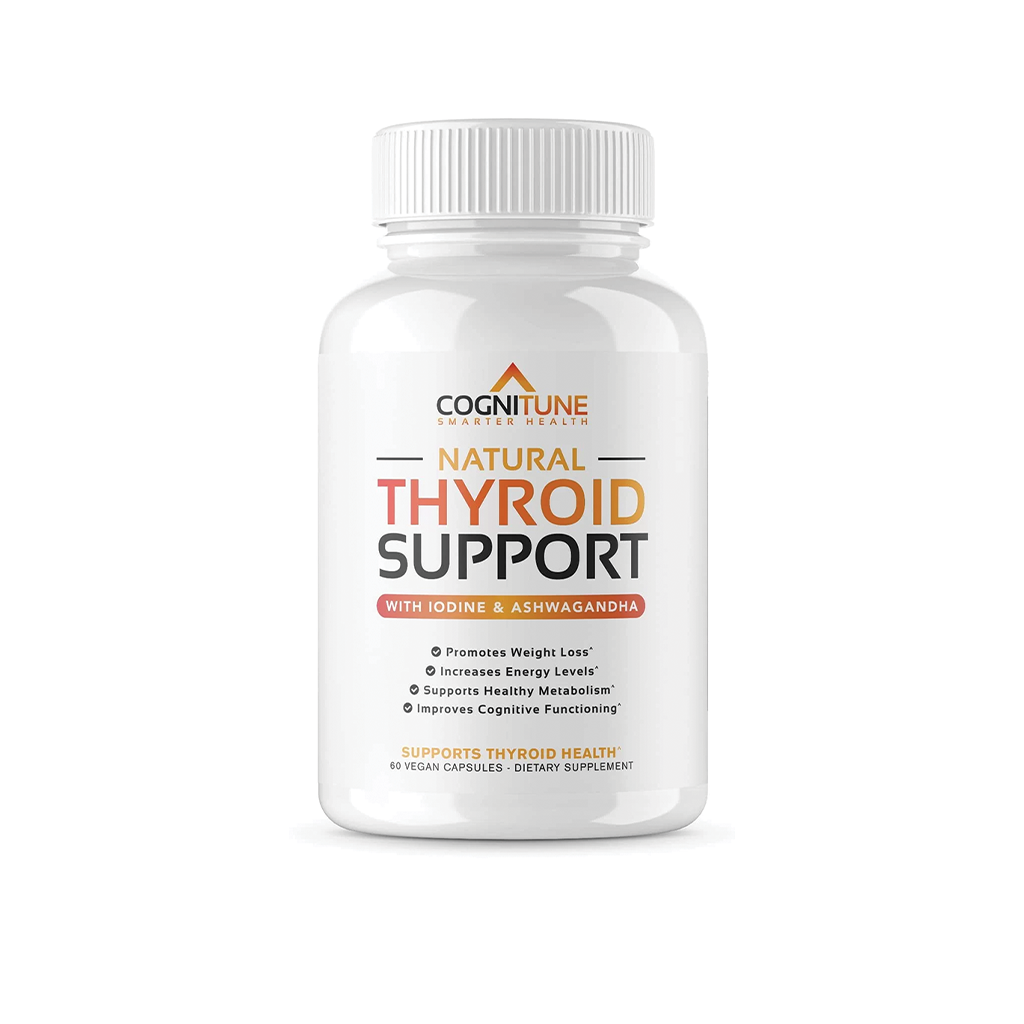Adrenal Fatigue: Myth or Reality? Unpacking the Controversy and Supporting Adrenal Health

In the world of health and wellness, few topics have sparked as much debate as adrenal fatigue. This term, often used to describe a condition where chronic stress supposedly leads to the depletion of the adrenal glands, is widely discussed but remains controversial within the medical community. Some swear by the diagnosis and treatment of adrenal fatigue, while others question its scientific validity. This article will delve into the concept of adrenal fatigue, explore the science behind the controversy, and provide evidence-based strategies to support adrenal health.
Understanding Adrenal Fatigue: The Concept
The term "adrenal fatigue" was popularized by Dr. James Wilson in 1998 to describe a collection of symptoms thought to result from overworked adrenal glands. According to this concept, chronic stress leads to the continuous production of cortisol, the primary stress hormone, which eventually exhausts the adrenal glands and leads to symptoms such as:
- Fatigue (especially upon waking)
- Difficulty handling stress
- Cravings for salty or sweet foods
- Lightheadedness
- Weakened immunity
While these symptoms are very real and often debilitating, the existence of adrenal fatigue as a distinct medical condition is not widely accepted in conventional medicine. This is primarily because the adrenal glands, which produce hormones like cortisol and adrenaline, are generally robust and capable of adapting to chronic stress without "burning out."
The Scientific Debate: Myth or Reality?
The main argument against adrenal fatigue lies in the lack of scientific evidence. Conventional endocrinologists argue that while the adrenal glands can be affected by diseases such as Addison's disease or Cushing's syndrome, there is no solid proof that chronic stress alone can cause them to malfunction in the way adrenal fatigue proponents suggest. Blood tests in people diagnosed with adrenal fatigue often show normal cortisol levels, which raises questions about the validity of the condition.
However, supporters of the adrenal fatigue theory argue that conventional tests might not detect subtle imbalances in adrenal function. They suggest that traditional medicine’s binary approach—either the adrenal glands are diseased or they are healthy—fails to recognize the possibility of a spectrum of adrenal dysfunction that falls outside of these two extremes.
Supporting Adrenal Health: Evidence-Based Strategies
Whether or not adrenal fatigue is a distinct medical condition, it's undeniable that chronic stress can have significant effects on the body. The good news is that supporting adrenal health doesn't require a diagnosis of adrenal fatigue. Here are some science-backed strategies to maintain healthy adrenal function and overall well-being:
Stress Management Techniques
Scientific Explanation: Chronic stress is a major trigger for increased cortisol production. Over time, elevated cortisol levels can disrupt many bodily functions, including sleep, immune response, and metabolism.
Actionable Tips: Incorporating stress management techniques like mindfulness meditation, deep breathing exercises, or yoga can help lower cortisol levels and reduce the burden on the adrenal glands. Studies have shown that regular practice of these activities can improve emotional well-being and reduce stress-related symptoms.
Prioritizing Sleep
Scientific Explanation: The adrenal glands regulate the sleep-wake cycle through cortisol production. Poor sleep can lead to dysregulation of cortisol, further stressing the adrenal glands.
Actionable Tips: Aim for 7-9 hours of quality sleep per night. Establish a consistent sleep routine, limit exposure to screens before bedtime, and create a calming pre-sleep environment. Research has consistently shown that improving sleep quality can help balance cortisol levels and support adrenal health.
Balanced Nutrition
Scientific Explanation: The adrenal glands require certain nutrients to function properly. Deficiencies in these nutrients can impair adrenal function and overall stress response.
Key Nutrients:
B Vitamins: Especially B5 (pantothenic acid) and B6, which play crucial roles in energy production and cortisol synthesis. Studies show that these vitamins are essential for proper adrenal function.
Vitamin C: The adrenal glands contain high concentrations of vitamin C, which is used in the production of cortisol. Research indicates that vitamin C supplementation can help modulate cortisol levels, particularly during periods of stress.
Magnesium: This mineral helps regulate the hypothalamic-pituitary-adrenal (HPA) axis, which controls stress responses. Low magnesium levels can exacerbate stress and lead to dysregulated cortisol production.
Zinc: Zinc is involved in the regulation of cortisol and immune function. Adequate zinc intake helps support adrenal health by maintaining balanced cortisol levels.
Actionable Tips: Focus on a diet rich in whole foods, including plenty of fruits and vegetables, lean proteins, and healthy fats. Incorporate nutrient-dense foods such as:
Citrus fruits (rich in vitamin C)
Nuts and seeds (rich in magnesium and B vitamins)
Whole grains and legumes (for B vitamins and zinc)
Leafy greens (high in magnesium)
Oysters and shellfish (excellent sources of zinc)
Limiting excessive caffeine and sugar, which can exacerbate stress and cortisol production, is also beneficial.
Regular Physical Activity
Scientific Explanation: Exercise has a dual effect on cortisol levels. Moderate, consistent exercise can help regulate cortisol production, but overtraining can lead to elevated cortisol and adrenal strain.
Actionable Tips: Engage in regular, moderate-intensity exercise like walking, cycling, or swimming. Aim for 150 minutes of moderate activity per week, as recommended by health guidelines. It's important to listen to the body and avoid overtraining, especially if feeling fatigued.
Adaptogenic Herbs
Scientific Explanation: Adaptogens are a class of herbs that help the body adapt to stress and normalize bodily functions. Some research suggests that adaptogens like Ashwagandha, Rhodiola, and Holy Basil can modulate cortisol production and support adrenal health.
Actionable Tips: Consult with a healthcare provider before incorporating adaptogens into your routine. These herbs can be taken in supplement form or brewed into teas, but dosage and suitability vary from person to person.
Conclusion: Navigating the Adrenal Fatigue Controversy
While the debate over adrenal fatigue continues, it is clear that chronic stress can have profound effects on the body, including the adrenal glands. Whether or not adrenal fatigue is a diagnosable condition, the symptoms associated with it are real and deserve attention. By focusing on stress management, sleep, nutrition, exercise, and potentially incorporating adaptogenic herbs, individuals can support their adrenal health and improve their overall well-being.
For those concerned about adrenal function, it is always advisable to seek guidance from a healthcare provider. Comprehensive testing and a holistic approach to health can ensure that any underlying issues are addressed effectively. At the end of the day, supporting adrenal health is about fostering balance in all aspects of life—physical, mental, and emotional.
Sources:
Adrenal fatigue
Endocrine Society
https://www.endocrine.org/patient-engagement/endocrine-library/adrenal-fatigue
Addison’s disease
NHS
https://www.nhs.uk/conditions/addisons-disease/
Cushing’s syndrome
NIH
https://www.niddk.nih.gov/health-information/endocrine-diseases/cushings-syndrome
Elevated cortisol levels
Hirotsu, et al., Sep 2015
https://www.ncbi.nlm.nih.gov/pmc/articles/PMC4688585/
Stress management
Zok, et al., Apr 2024
https://www.frontiersin.org/journals/public-health/articles/10.3389/fpubh.2024.1370399/full
Poor sleep
Leproult, et al., Oct 1997
https://pubmed.ncbi.nlm.nih.gov/9415946/
Sleep and cortisol
Song, et al., Jun 2015
https://www.sciencedirect.com/science/article/abs/pii/S0167876015001567
Vitamin B5 and B6
Stachowicz and Lebiedzinska, Sep 2016
https://link.springer.com/article/10.1007/s00217-016-2772-3
Vitamin C and stress
Moritz, et al., Nov 2020
https://www.sciencedirect.com/science/article/pii/S0955286320304915
Magnesium and stress
Pickering, et al., Dec 2020
https://www.ncbi.nlm.nih.gov/pmc/articles/PMC7761127/
Zinc and adrenal health
Sumekar, et al., Apr 2022
https://ejournal2.undip.ac.id/index.php/jbtr/article/view/13808
Exercise and cortisol
Caplin, et al., Sep 2021
https://www.sciencedirect.com/science/article/pii/S0306453021002109
Adaptogens
Tóth-Mészároz, et al., Sep 2023
https://www.sciencedirect.com/science/article/pii/S1756464623002955

